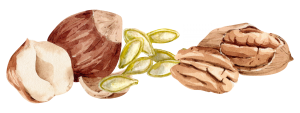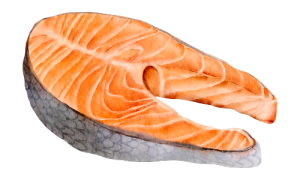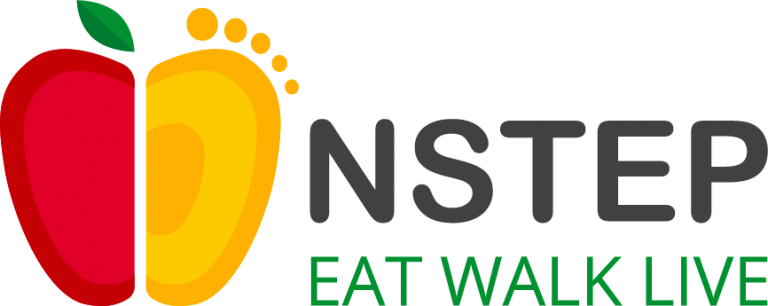Written by: Darlene Schindel
Greetings NSTEPpers!
This month, we wanted to share some “brain drainers and brain boosters” to keep you going as we head into the new year. If you have followed NSTEP, these tips will not be new.
There are SO MANY great resources to help us learn about the foods you have in your pantry and fridge that may be helping or hindering your brain. The foods we eat have a lot to do with how sharp, attentive, alert, focused, and happy we feel after we eat them.
Certain foods that taste great may have additives that can cloud our brains and leave us feeling sluggish and ‘dull’. The opposite is also true. We can eat certain foods and feel a charge of mental energy and focus.
Here is a short list of foods that either BOOST or DRAIN your brain. Keep these in mind the next time you are grocery shopping!
Brain Booster Foods
Bell Pepper 
This colourful, crispy, and sweet vegetable is a rich source of the antioxidant vitamin C. We have learned that foods rich in vitamin C, including bell peppers, are associated with a lower risk of developing Alzheimer’s disease. Eat them raw in salads or on their own with a dip, or cook them in soups, chilli, or fajitas.
Nuts and Seeds 
Nuts and seeds are great sources of vitamin E which helps our brains stay sharp as we age. Try walnuts, hazelnuts, Brazil nuts, almonds, cashews, peanuts, sunflower seeds, sesame seeds, flax seeds, or nut butter products such as peanut butter, almond butter, or tahini. Raw or roasted doesn’t matter, although unsalted nuts are preferable. Nuts can also reduce brain inflammation and keep blood pressure low, which is important for stroke prevention.
Blueberries 
Blueberries are tasty, sweet, and loaded with antioxidants. They’re packed with vitamins C and K, as well as fibre. Eat them raw or add them to oatmeal, salads, and desserts. They’re low in calories and incredibly healthy, potentially regulating blood sugar levels and good for our brain and heart health. They can boost our focus and memory.
Broccoli 
Broccoli is one of the BEST foods! It contains high levels of vitamin K and choline, a B vitamin known for supporting brain development. It keeps memory sharp and protects the brain from declining with age. It’s also loaded with vitamin C. Just one cup provides 150 percent of the recommended daily intake. Its high-fibre levels make you feel full quickly, too. Try stir-frying broccoli with olive oil, red pepper flakes, salt, and pepper. Add a spoonful of orange or lemon juice to give it a bit of sweetness.
Fish 
Salmon, mackerel, tuna, and other fish are rich in heart-healthy omega-3 fatty acids, including docosahexaenoic acid (DHA). DHA seems to be very important for the normal functioning of neurons in the brain. Not only does fish help our mood, but it also helps us focus and improves memory.
Brain Drainer Foods
Our NSTEP lesson around brain drainers is what we call ‘OTHERS.’ These are foods that are too high in sugar, salt or fat.
Added Sugar
Initially, when you eat foods with added sugar, you get high, which is deceiving because you may feel good for a short while, and then you crash, feeling irritable, sleepy, and unable to concentrate. High sugar intake has been linked to depression.
Partially Hydrogenated Oils
Foods that list “partially hydrogenated oils” in their ingredients list are a code for trans fats, which in addition to upping your risk for obesity and damaging your heart health can cause a serious brain drain. Common culprits include fried foods, baked goods, and processed foods. Try baking or grilling chicken instead of frying it, go for sweet potatoes instead of French fries, and avoid anything wrapped in plastic that sits on a shelf for months at a time.
Saturated Fats
Saturated fat impairs your brain’s ability to learn and form new memories within as little as 10 minutes after you eat. Processed meats such as bacon, pepperoni, pork sausage, or chorizo are examples of very tasty foods that are high in saturated fat. If your diet is high in saturated fat, it decreases your brain’s ability to fight the formation of plaque in your brain, a process associated with Alzheimer’s disease.
The next time you head out to the grocery store, keep these brain booster and brain drainer foods in mind to keep your brain healthy!
References
- Zhou, F., Xie, X., Zhang, H., & Liu, T. (2022). Effect of antioxidant intake patterns on risks of dementia and cognitive decline. European Geriatric Medicine, 1, 1–9. https://doi.org/10.1007/s41999-022-00720-7
- Mattioli, R., Francioso, A., Mosca, L., & Silva, P. (2020). Anthocyanins: A Comprehensive Review of Their Chemical Properties and Health Effects on Cardiovascular and Neurodegenerative Diseases. Molecules, 25(17), 3809. https://doi.org/10.3390/molecules25173809
- Schincaglia, R., Pimentel, G., & Mota, J. (2017). Nuts and Human Health Outcomes: A Systematic Review. Nutrients, 9(12), 1311. https://doi.org/10.3390/nu9121311
- https://ods.od.nih.gov/factsheets/VitaminC-Consumer/
- Pistollato, F., Iglesias, R. C., Ruiz, R., Aparicio, S., Crespo, J., Lopez, L. D., Manna, P. P., Giampieri, F., & Battino, M. (2018). Nutritional patterns associated with the maintenance of neurocognitive functions and the risk of dementia and Alzheimer’s disease: A focus on human studies. Pharmacological Research, 131, 32–43. https://doi.org/10.1016/j.phrs.2018.03.012

